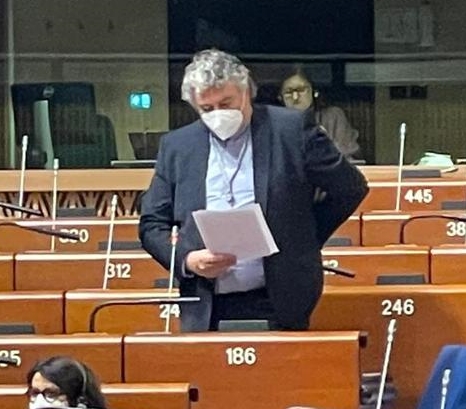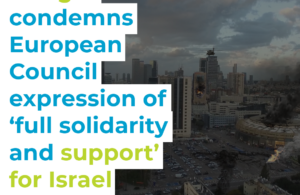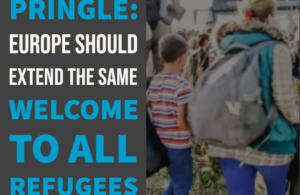- Pringle: We need a policy that recognises the importance of inshore fishing
- Pringle: Disabled people and carers face crisis of State neglect
- Pringle: Failed FF/FG housing policies forcing people to put their lives on hold
- Pringle welcomes Donegal council motion on Occupied Territories Bill: ‘We cannot stand by in the face of genocide’
Pringle tells Council of Europe that politicians across Europe must stand with LGBTI people
- Updated: 25th January 2022

Independent TD for Donegal, Thomas Pringle, told the Council of Europe today that politicians have a responsibility to stand with LGTI people across Europe.
Deputy Pringle said: “Hate crime against LGBTI people is on the rise right across Europe. It is at different levels of intensity and violence in every country but wherever it arises it is having a huge impact on a very vulnerable group in society and if unchecked will lead to attacks on wider marginalised groups.”
“We as politicians have a responsibility to stand with LGBTI people across Europe now,” he said.
Deputy Pringle is in Strasbourg, where he took part today in a Council of Europe debate on the council’s report, “Combating rising hate against LGBTI people in Europe”.
Deputy Pringle said: “In Ireland we do not yet have specific legislation that details hate crime. Our Department of Justice is only now looking at implementing legislation, so even with the best will in the world that will be a few years away from being enacted.”
He said gardaí have introduced a working hate crime definition, to try and quantify the extent of the problem. However he noted there have been problems with the veracity of their reporting of various crime figures.
The deputy said: “In order for us in Ireland to have legitimacy when challenging other members of the Council of Europe on their record we need to improve our own.”
He also said there is a responsibility to address attacks on social media on the rights of trans people.
Deputy Pringle said: “Allowing this unchecked on social media amounts to condoning hateful language and incitement which is in violation of the European Convention of Human Rights. As the Commissioner for Human Rights highlighted in May 2021, ‘decision makers have a responsibility to create and set the obligations that social media companies must meet and the judiciary has a responsibility to enforce them’.
“They have a wider political motivation as is said in the report as well, with attacks on abortion, contraception, sexuality education, same sex marriage, gender and gender recognition, access to transition-related medical care, trans and intersex participation in sport and ratification and implementation of the Istanbul agenda which, by maintaining inequalities, directly violates women’s, children’s and LGBTI people’s human rights,” he said.
Deputy Pringle concluded: “It is clear, as the author says, that the recognition of LGTBI people’s human rights does not harm society, women or children: on the contrary, it ensures a safe and welcoming society for everyone.”


